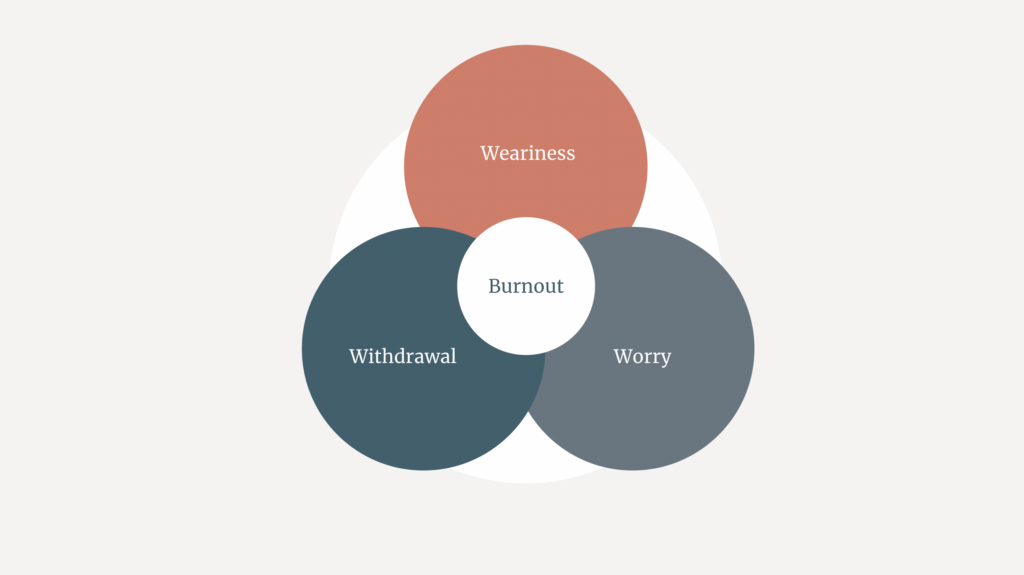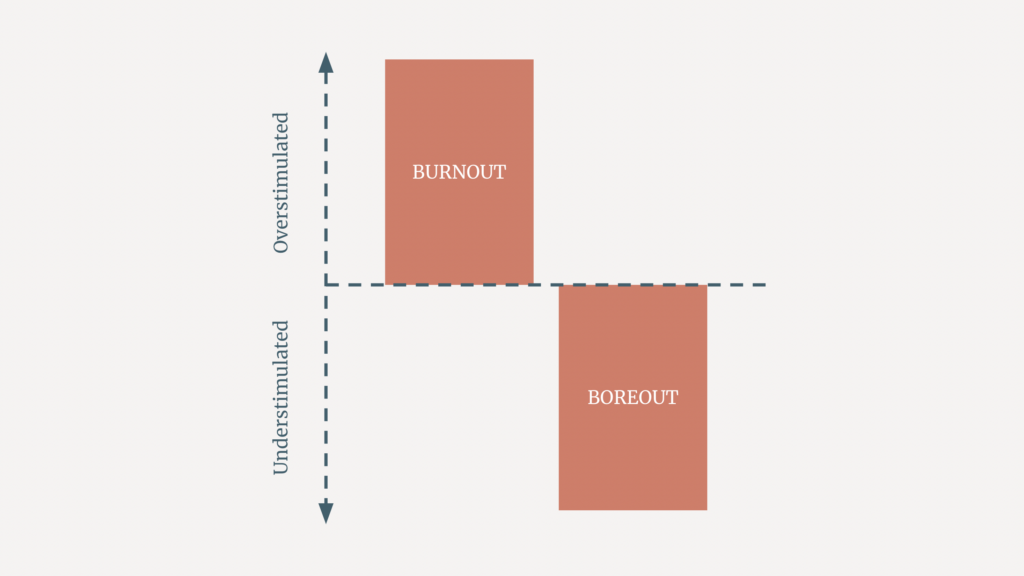By most standards, I work a lot. Between running a company, pursuing a Ph.D., speaking at events, and writing a book, my days are filled with work. My friends sometimes comment that I work too much. But it doesn’t feel this way. I do work a lot, but not too much. I know because I have experienced what it’s like to work too much.
About ten years ago, when I was offered a full-time job at Google, I could not believe it was true. Surely, they had made a mistake. Someone will realize that I’m not nearly as smart and talented as everyone around, and I will get fired. The classic imposter syndrome.
As a result, I decided to work hard. Really hard. It didn’t help that my manager and I both joined Google on the exact same day. We were both eager to prove ourselves. We said yes to everything and offered to help on every project. I was getting very little sleep. Some days, I could barely keep my eyes open.
The wake-up call happened on a work trip to San Francisco. Because of all of my commitments, I had decided to work double-shift, both UK and US times (I know, I know).
I had a call in the middle of the night with a colleague based in London, where I presented the results of some research I conducted. When he questioned the methodology, I felt tears filling my eyes and pretended that the connection was too bad to continue the call. What the heck was happening to me?
Burning out
I didn’t know it then, but, of course, it was burnout. I did manage to power through — after all, I really had to make sure no one would notice the imposter in the room — but it felt miserable.
The interesting part is that it was not so much the quantity of work that made it hard to cope. It wasn’t the long hours that were making me mentally, emotionally, and physically exhausted. It was the lack of control.
I had no control over the goals, no control over the timelines. As a result, I was emotionally exhausted and made poor self-care choices (and I certainly didn’t have any mindful productivity tools at the time!), which only aggravated the situation.
This is in line with the most recent research, which shows that burnout is multifaceted and rarely has to do with the volume of work you have to do. Burnout is emotional in nature.
The research literature uses many different terms to describe the main types of burnout, but here are the ones I use for the sake of simplicity: burnout can be linked to weariness, withdrawal, or worry — and often to a mix of those three dimensions.

- Weariness. You feel emotionally exhausted by the efforts required at work, and you lack sufficient emotional energy to cope with work tasks. This dimension of burnout is associated with a frenetic approach to work, desperately trying to manage the overload and working intensely until exhaustion.
- Withdrawal. You feel like you have lost your idealism towards work, which manifests into feelings of detachment and indifference. This dimension of burnout is typical in monotonous and unstimulating professions, but it may happen in any work where you feel under-challenged.
- Worry. You feel doubt about your ability to perform the job effectively, and you progressively develop a tendency to evaluate your work negatively. This dimension of burnout is often linked to a lack of confidence in the results of your work and an unmet need for recognition of the efforts you invested.
As you can see, the absolute amount of work itself has little to do with burnout, except that burnout can be triggered by a lack of control over how much work you have.
Burnout also doesn’t always feel like a frenzied experience. It can be lots of little flares of anxiety or a very slow burn where we increasingly detach from work and become cynical.
The latter is colloquially called a “boreout” where people struggle with the daily sameness of their jobs. Psychologist Steve Savels explains: “You become irritated, cynical, and you feel worthless. Although you don’t have enough to do, or what you have to do is not stimulating you enough, you get extremely stressed. (…) With a boreout, you get stuck in your ‘comfort zone’ for too long, until your personal development comes to a halt.”

Burnout is when you are overstimulated, and boreout is when you are understimulated. Both leave you exhausted, feeling empty, and unable to cope with the demands of work and life. So, how can you restore your energy and your enthusiasm?
Steering the ship
Many people suffering from burnout tend to be high-achievers, for whom a sense of control is particularly important. However, trying to regain complete control can be counterproductive and frustrating. Instead, take a gentle, methodical approach:
- Align. Ask yourself why you started working at this company or on this project in the first place. Is your work still aligned with your values? Do the people you work with give you energy, or drain your energy? Are you still learning and growing? If not, time to consider changing projects or changing jobs. However, don’t do anything drastic while feeling burned out. Just make some space for research and reflection.
- Brainstorm. Sometimes it can be hard to come up with solutions on your own. Does the lack of meaning come from the projects, the work style, the team? Sit down with a friend or trusted colleague to come up with ideas for moving forward. Just tell them you’re experiencing signs of burnout and would like to “debug” the situation with them. Most people would be happy to help.
- Experiment: Instead of trying to find the perfect solution that solves all of your issues at work, put your scientist hat on, and try various small changes. Burnout can arise from forcing yourself into a linear path instead of embracing a circular model of growth. You could design a different project management strategy with your team, talk to a therapist or a coach, spend part of your work time on more creative projects… Just make sure to learn from each growth loop so you can design work that works for you.
There is no silver bullet, but it helps to understand that burnout is first and foremost emotional, and then ask yourself whether it comes from a lack of alignment and if you could brainstorm and experiment with different ways to better align your work with your emotional needs.
P.S. As with all things mental health, it’s also much better to proactively listen to the signals your brain and your body are sending you. Feel free to try some of my interoceptive journaling prompts so you can notice any early symptoms of burnout before it becomes more difficult to handle.
